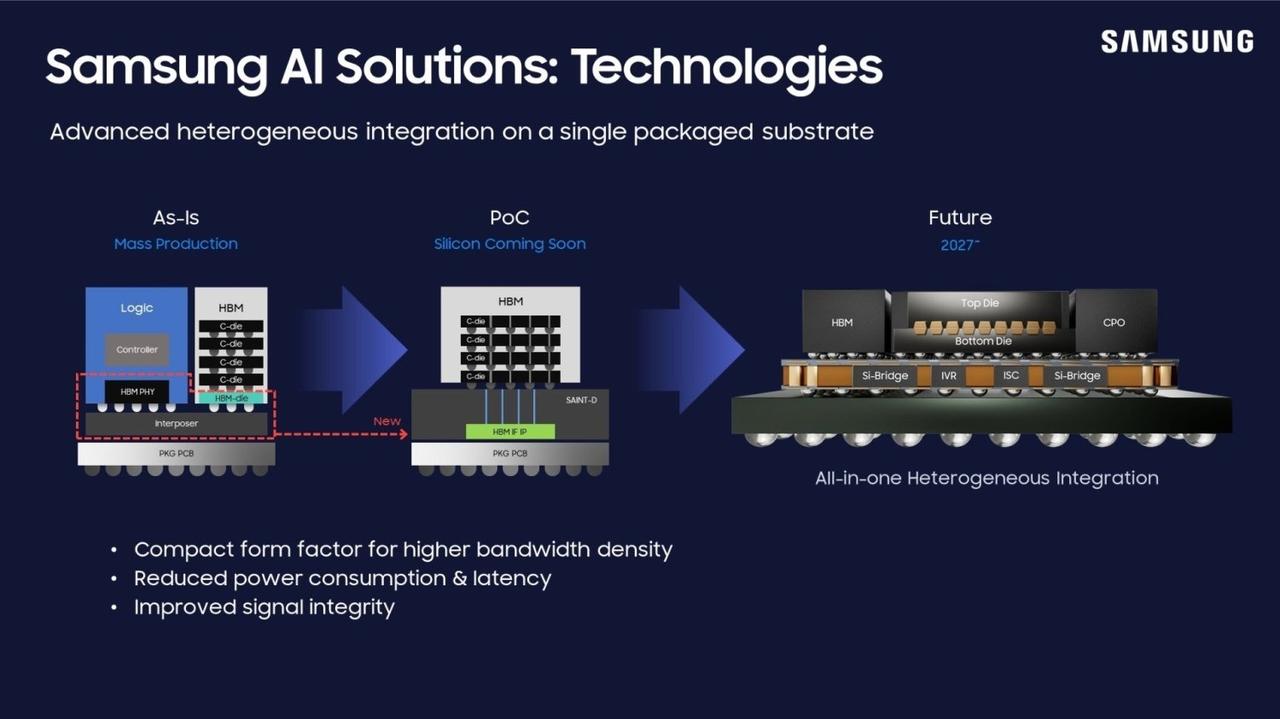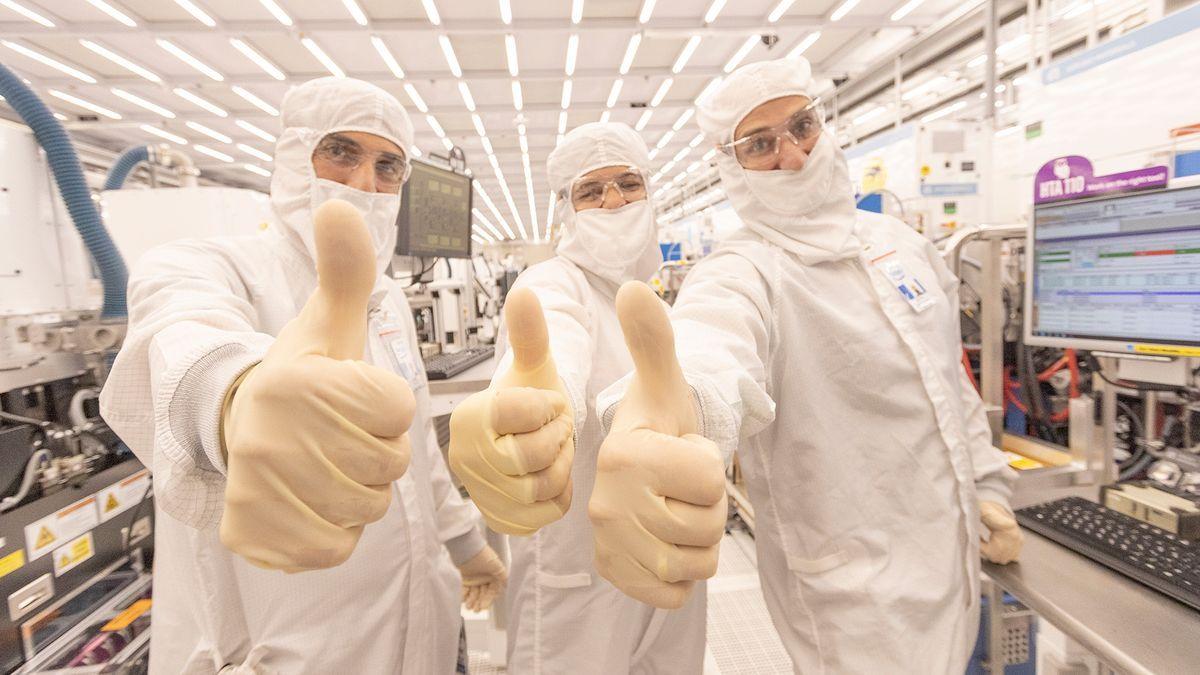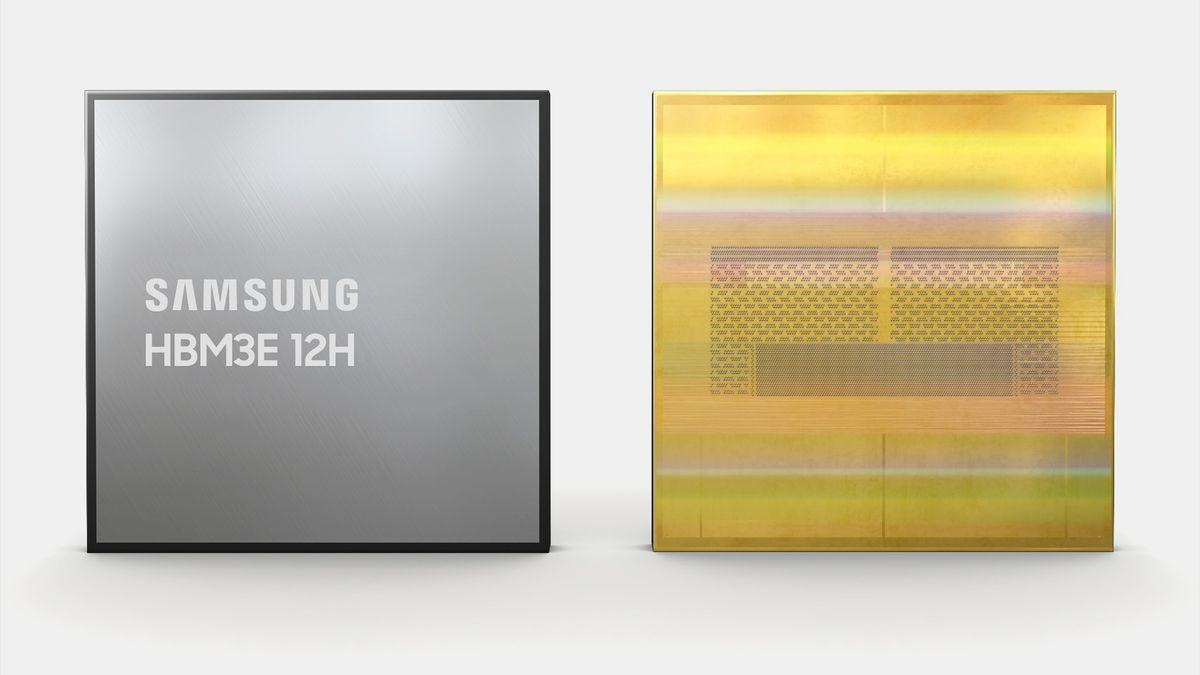Samsung Foundry Pursues NVIDIA's Next-Gen GPU Orders with 2nm Process Node
2 Sources
2 Sources
[1]
Samsung Foundry could make NVIDIA's next-gen GPUs on its in-house 2nm process node
As an Amazon Associate, we earn from qualifying purchases. TweakTown may also earn commissions from other affiliate partners at no extra cost to you. Samsung Foundry is working hard on securing new customers, with reports persisting that the company is pushing to make GPUs for NVIDIA on its new 2nm process node. In a new report out of South Korea picked up by Jukan Choi on X, we're hearing that thanks to the success of the Nintendo Switch 2 and its use of a custom NVIDIA Tegra T239 processor inside fabbed on Samsung Foundry's 8nm process node, Samsung Foundry is pushing for 2nm GPU orders from NVIDIA for the future. Samsung Electronics is pursuing orders for NVIDIA GPUs in the Gate All Around (GAA) 2nm process node, with the GAA process technology first developed by Samsung, and is a transistor structure which sees the gate surround all four sides of the channel. GAA is superior in terms of power efficiency and performance compared to the FinFET process, where the gate contacts one and three sides of the channel, respectively. Samsung kicked off mass production of the GAA 3nm process in 2022 but had a hard time securing customers because of failures surrounding the yield rate, but the semiconductor foundry has been hard at work for the last few years, and has significantly increased the yield of its new 2nm process node, which is scheduled for mass production by the end of 2025. We heard rumors back in May 2025 that NVIDIA could have its next-gen AI GPUs fabbed at Samsung Foundry, so that the company could diversify its AI chip orders with TSMC, and not have all of its AI chip orders in the same basket. These new rumors just add more fuel to that fire. Samsung, unlike TSMC, can fab the GPU and provide its in-house HBM3, HBM3E, or HBM4 memory. TSMC cannot do that, as it requires HBM memory from the likes of SK hynix or Micron, so fabbing its AI GPUs at Samsung make sense if it can get closer to TSMC with its new 2nm process node.
[2]
Samsung Foundry Reportedly Eyes 2nm Orders For NVIDIA's Next-Gen GPUs As It Hopes For a Massive Comeback
Samsung looks to expand its influence over the semiconductor markets with recent moves, and now, the company has started to pursue none other than NVIDIA for next-gen GPU orders. Samsung Foundry seems to be undergoing extensive restructuring. The division recently announced several moves that are considered to be " shockers" for many, in particular the decision to opt out of the race for "node supremacy" with TSMC. Samsung looks determined to reach profitability with its foundry business, which is why the company has shifted focus towards existing projects, and most importantly, the upcoming 2nm node. In a report by Korean media, it is claimed that Samsung Foundry is pushing for 2nm orders with NVIDIA for their next-gen GPUs, both consumer and AI ones. There's a dire need for a "second-hand" in the chip industry, given that TSMC's production lines are too populated for processes like the 2nm, and it seems like Samsung has stepped in the right time. The Korean giant has had tough luck with its previous nodes, like the 3nm GAA, mainly because the firm was unable to bring yield rates suitable enough for market adoption, but with the 2nm, this looks to change. The 2nm GAA process by Samsung currently stands at a yield rate of 40%, and is on-track to be sufficient for mass production by the end of the year. Acquiring NVIDIA as a partner is a crucial deal for Samsung Foundry, and the company has managed to gain the trust of Team Green by supplying 8nm for the Tegra SoC, which is used in the Nintendo Switch 2. Given that Samsung manages to proceed with mass production of the 2nm process without any delays, the company could very well act as an alternative to TSMC, stepping up the competition. The Korean giant is also extending 2nm derivatives, introducing a third-generation "SF2F+" node, which brings in higher performance. Apart from wafers, Samsung is also eying to secure NVIDIA's supply of HBM3E and HBM4, as the firm has seen massive improvements in the DRAM segment. They have also managed to gain AMD's trust by supplying HBM3E for their Instinct MI355X AI accelerators, which shows that the HBM business also looks to recover. It would be interesting to see how the situation turns out for Samsung Foundry, since they do look desperate to turn things around.
Share
Share
Copy Link
Samsung Foundry is making a strategic push to secure orders for NVIDIA's future GPUs using its advanced 2nm process node, leveraging its success with the Nintendo Switch 2 chip and aiming to compete with TSMC in the high-end semiconductor market.
Samsung's Strategic Push for NVIDIA's GPU Orders
Samsung Foundry is making a bold move to secure orders for NVIDIA's next-generation GPUs, leveraging its advanced 2nm process node technology. This strategic initiative comes as Samsung aims to strengthen its position in the highly competitive semiconductor manufacturing market and challenge TSMC's dominance
1
2
.
Source: Wccftech
Building on Nintendo Switch 2 Success
The foundation for Samsung's pursuit of NVIDIA's business stems from its successful collaboration on the Nintendo Switch 2. Samsung Foundry is currently manufacturing the custom NVIDIA Tegra T239 processor for the upcoming gaming console using its 8nm process node
1
. This existing partnership has opened the door for Samsung to pitch its more advanced technologies to NVIDIA.The 2nm GAA Process Node Advantage
At the heart of Samsung's proposal is its 2nm Gate All Around (GAA) process node. This cutting-edge technology offers several advantages over the traditional FinFET process:
- Superior power efficiency
- Enhanced performance
- Improved transistor structure with gate contact on all four sides of the channel
1
Samsung began mass production of its 3nm GAA process in 2022 but faced challenges with yield rates. However, the company has since made significant progress, with the 2nm process node scheduled for mass production by the end of 2025
1
.Competing with TSMC
Samsung's push to secure NVIDIA's GPU orders is part of a larger strategy to compete more effectively with TSMC. The Korean giant is positioning itself as a viable alternative for high-performance chip manufacturing, especially as TSMC's production lines become increasingly crowded
2
.Currently, Samsung's 2nm GAA process has achieved a yield rate of 40% and is on track to reach levels suitable for mass production by the end of the year
2
. This improvement in yield rates is crucial for attracting major clients like NVIDIA.Integrated Solutions: A Potential Edge

Source: TweakTown
One of Samsung's unique selling points is its ability to offer both chip fabrication and in-house HBM (High Bandwidth Memory) solutions. Unlike TSMC, which relies on external suppliers for HBM, Samsung can provide HBM3, HBM3E, or HBM4 memory alongside its chip manufacturing services
1
. This integrated approach could be particularly attractive for AI GPU production, where high-performance memory is crucial.Related Stories
Diversification Strategy for NVIDIA
For NVIDIA, partnering with Samsung could represent a strategic move to diversify its supply chain. By not relying solely on TSMC for its chip production, NVIDIA could potentially mitigate risks and ensure a more stable supply of GPUs for both consumer and AI applications
1
2
.Challenges and Future Outlook
While Samsung's pursuit of NVIDIA's business is ambitious, the company still faces challenges. It needs to consistently improve its yield rates and demonstrate that its 2nm process can match or exceed TSMC's offerings in terms of performance and efficiency.
Samsung is also extending its 2nm technology, introducing a third-generation "SF2F+" node for even higher performance
2
. The success of these initiatives could significantly impact Samsung Foundry's position in the semiconductor industry and its ability to compete with TSMC for high-profile clients like NVIDIA.References
Summarized by
Navi
Related Stories
Recent Highlights
1
ByteDance's Seedance 2.0 AI video generator triggers copyright infringement battle with Hollywood
Policy and Regulation

2
Demis Hassabis predicts AGI in 5-8 years, sees new golden era transforming medicine and science
Technology

3
Nvidia and Meta forge massive chip deal as computing power demands reshape AI infrastructure
Technology








